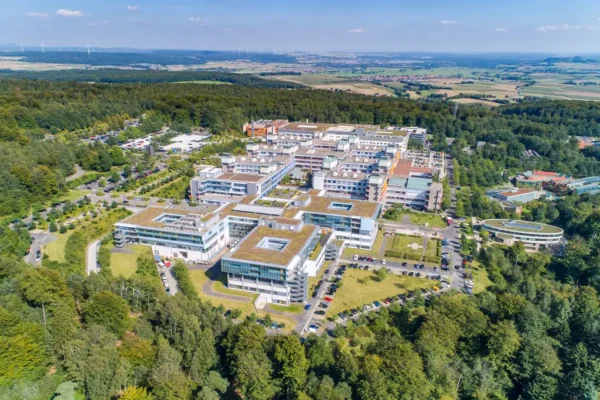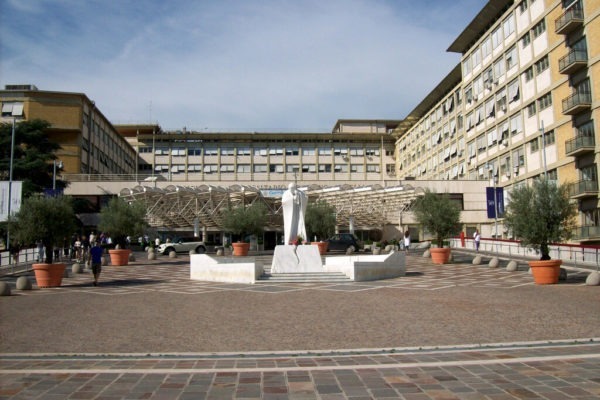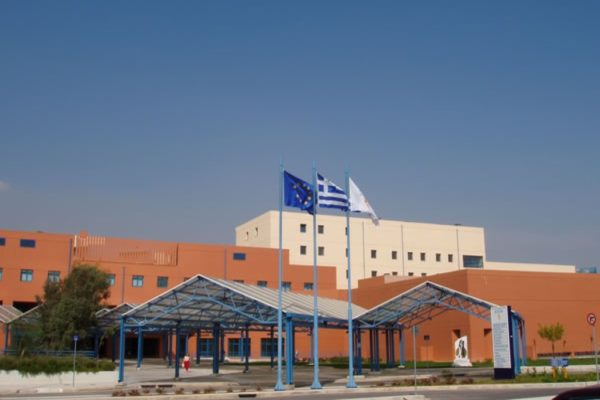St. Jude Children’s Research Hospital | IASIOS Enrolled Centre
 Dr. Michael Temple, MD, FRCPC, is a distinguished paediatric interventional radiologist recognized for his contributions to advancing interventional oncology techniques in children. He serves as the Director of Interventional Radiology at St. Jude Children’s Research Hospital, where he is a key member of the Comprehensive Cancer Center and Department of Radiology.
Dr. Michael Temple, MD, FRCPC, is a distinguished paediatric interventional radiologist recognized for his contributions to advancing interventional oncology techniques in children. He serves as the Director of Interventional Radiology at St. Jude Children’s Research Hospital, where he is a key member of the Comprehensive Cancer Center and Department of Radiology.
Dr. Temple earned his MD from Western University in London, Ontario, Canada, followed by a residency in Radiology at Reading Hospital and Medical Center, Pennsylvania State University. He completed a fellowship in Paediatric Interventional Radiology at The Hospital for Sick Children in Toronto, Ontario, Canada, and has held leadership roles in paediatric interventional oncology research and education.
Under Dr. Temple’s guidance, St. Jude Children’s Research Hospital achieved a significant milestone by enrolling in the International Accreditation System for Interventional Oncology Services (IASIOS), becoming the first paediatric centre to pursue this prestigious accreditation. This initiative underscores St. Jude’s commitment to advancing quality standards and safety in paediatric interventional oncology.
Dr. Temple’s research interests focus on innovative techniques in paediatric interventional oncology, including ablative therapies, liver-directed treatments such as radioembolization, and palliative care interventions for children with cancer. He has pioneered international collaborations in paediatric interventional radiology research, fostering global advancements in the field.
As a dedicated researcher and educator, Dr. Temple has authored numerous peer-reviewed publications and has been instrumental in shaping best practices for interventional oncology in paediatrics. His clinical expertise and commitment to improving outcomes for paediatric cancer patients make him a highly respected figure in the field.
Get to know Dr. Temple a little bit better!
What are your hobbies and interests outside of your professional work in medicine?
I enjoy cooking and travel photography.
Can you share a pivotal experience from your education or career that has significantly shaped your journey in interventional oncology?
After my fellowship, I attended ECIO for the first time. I was amazed by the minimally invasive IO procedures being performed for adults and immediately recognized their potential applications for paediatric patients.
What inspired you to pursue IASIOS accreditation for your practice or institution?
St. Jude is a research institution, and pursuing IASIOS accreditation highlights our commitment to excellence in both clinical care and research. The IR division at St. Jude is undergoing significant transformation, with a renewed focus on paediatric interventional oncology. IASIOS accreditation reinforces this focus, demonstrating to the institution, our patients, and their families our dedication to delivering IO procedures at the highest standards of clinical care quality.
How does IASIOS accreditation benefit both patients and interventional oncologists?
IASIOS accreditation ensures that our interventional oncology practice, being relatively new, adheres to the highest quality standards, providing assurance to both patients and the clinical team.
How do you envision the future of interventional oncology, and what role do you see it playing in the broader field of cancer care?
I envision significant growth in paediatric interventional oncology in the coming years. In paediatrics, interventional oncology plays a crucial role in supporting young patients through both diagnostic and therapeutic procedures. Minimally invasive, image-guided biopsies will increasingly provide tissue samples needed for advanced genetic and metabolic testing in modern oncology care. Traditional vascular, ablative, and palliative therapeutic procedures will continue to expand. Furthermore, our ability to access all areas of the body will lead to innovative approaches, such as intra-arterial administration of CAR-T cells for solid tumour treatments, enhancing currently investigational therapies.
What advice would you give to the next generation of interventional oncologists?
As paediatric interventional oncology is still in its early stages of development and utilization, it is crucial to learn from the successes and challenges faced by colleagues currently providing paediatric oncology care. This understanding will help identify opportunities to deliver the best interventional oncology support possible. Active participation in tumour board meetings and organized collaborative cancer groups, such as COG and SIOP, is vital. Looking ahead, collaborating with oncologists, surgeons, and radiation oncologists to design high-quality prospective trials will be essential for evaluating interventional oncology procedures in paediatric patients, ultimately driving their acceptance and integration into routine paediatric oncology care.
St. Jude Children’s Research Hospital | Memphis, Tennessee
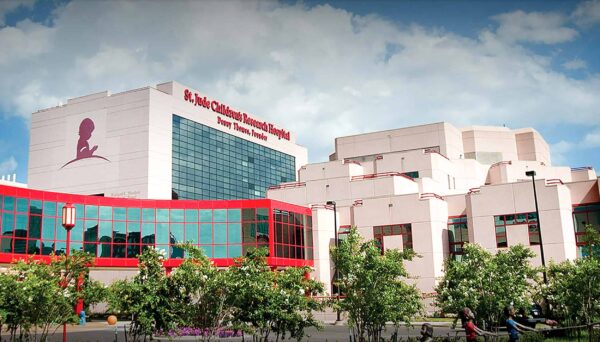
Prof. Afshin Gangi
University Hospital of Strasbourg | Centre of Excellence
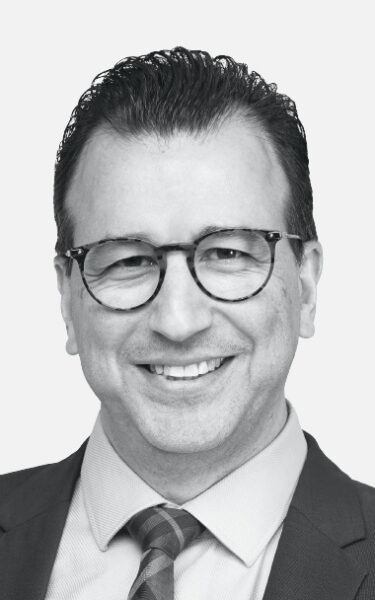
Professor Afshin Gangi, MD, PhD, is a renowned interventional radiologist and an esteemed authority in oncological interventional radiology. He is the Professor of Radiology and Chairman of Radiology and Nuclear Medicine at the University Hospital of Strasbourg, France, where he leads the Interventional Radiology department. Prof. Gangi also serves as a professor at King’s College London.
Born on December 7, 1962, Prof. Gangi is a multilingual professional fluent in English, French, German, and Persian. His distinguished career began with his medical studies in Reims, France, and continued with residencies and specialized training in Strasbourg and Luxembourg. He holds a PhD in laser physics and has been a full professor of radiology since 2000. Throughout his career, he has contributed significantly to research and education, including over 200 scientific papers, more than 500 lectures, and authorship of 40 book chapters.
Prof. Gangi’s dedication and expertise have earned him numerous accolades, including multiple “Certificates of Merit” and “Cum Laude” awards, as well as the prestigious Andreas Gruentzig lecture at CIRSE. He is an honorary fellow of several professional societies, including the British Society of Interventional Radiology and the German Society of Interventional Radiology.
Within CIRSE (Cardiovascular and Interventional Radiological Society of Europe), he has held various leadership roles, culminating in his presidency from 2019 to 2022.
Throughout his career, Prof. Gangi has been committed to advancing the field of radiology through both clinical innovation and professional leadership, making him a highly respected figure in global interventional oncology.
Under Prof. Gangi’s leadership, the University Hospital of Strasbourg achieved the prestigious designation as the first IASIOS Centre of Excellence. This recognition reflects the hospital’s adherence to the highest standards in interventional oncology, having met all 52 core and extended criteria set forth by the CIRSE Standards of Quality Assurance in Interventional Oncology. This accomplishment underscores Prof. Gangi’s commitment to quality, safety, and innovation in oncological care, further solidifying his and his institution’s status as global leaders in interventional radiology.
Get to know Prof. Gangi a little bit better!
What are your hobbies and interests outside of your professional work in medicine?
I enjoy motorcycle riding, hiking, and paragliding for adventure. I also love watching movies, listening to music, exploring different wines, and cooking as creative outlets.
Can you share a pivotal experience from your education or career that has significantly shaped your journey in Interventional Oncology?
During my residency in the lung cancer department, seeing the severe pain cancer patients endured was a turning point. It motivated me to focus on finding minimally invasive ways to improve their quality of life.
What motivated you to choose a career in Interventional Oncology over other medical specialties?
The combination of diagnostic imaging and intervention intrigued me, as it allowed for both diagnosing and directly treating patients. Interventional oncology is a fast-growing field with exciting opportunities for research and development, which made it an ideal choice.
What inspired you to pursue IASIOS accreditation for your practice or institution?
We needed a high standard of quality to ensure our procedures were safe and reproducible. IASIOS accreditation provided a framework for achieving this, helping us maintain the highest level of care for our patients.
How does IASIOS accreditation benefit both patients and Interventional Oncologists?
IASIOS has helped us identify and address gaps in our practice. It has enabled us to standardize our interventions, improving patient safety, and showing both our institution and patients our commitment to quality care.
What key improvements has IASIOS accreditation brought to your Interventional Oncology services?
IASIOS has led to improvements in safety protocols, greater standardization of procedures, and reproducibility of outcomes, all of which have enhanced the quality of care we deliver.
How do you envision the future of Interventional Oncology, and what role do you see it playing in the broader field of cancer care?
I believe interventional oncology will become a key player in cancer care, evolving into an essential pillar of treatment.
What advice would you give to the next generation of Interventional Oncologists?
Focus on being excellent clinicians first. Master diagnostic radiology, and then work towards becoming skilled operators to provide the best care for your patients.
University Hospital of Strasbourg | Strasbourg, France
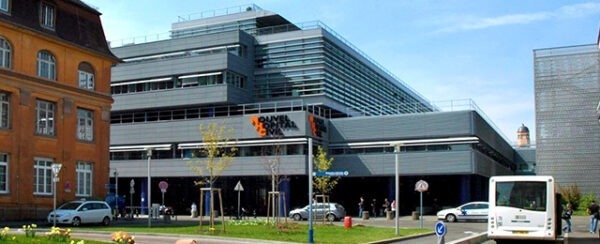
Prof. Andreas Mahnken
University Hospital Marburg | IASIOS Accredited Centre
 Professor Dr. Andreas H. Mahnken is a distinguished figure in the field of interventional oncology, renowned for his groundbreaking work at UKGM Marburg. Under his leadership, the facility has achieved the IASIOS accreditation seal, affirming its commitment to excellence in patient care and innovation.
Professor Dr. Andreas H. Mahnken is a distinguished figure in the field of interventional oncology, renowned for his groundbreaking work at UKGM Marburg. Under his leadership, the facility has achieved the IASIOS accreditation seal, affirming its commitment to excellence in patient care and innovation.
With a remarkable background in medical studies and residencies, Professor Mahnken has emerged as a leader in diagnostic and interventional radiology. Since 2012, he has served as Chairman of the Department of Diagnostic and Interventional Radiology at Marburg University Hospital, where his expertise in interventional radiology, computed tomography, and cardiac imaging has significantly advanced patient care.
Professor Mahnken’s contributions extend beyond clinical practice; he is a researcher and educator as well. He is credited as a (co)-author of over 300 peer-reviewed articles and book chapters, demonstrating his commitment to advancing medical knowledge. Additionally, his leadership roles and memberships in esteemed societies such as CIRSE and ESR underscore his influential presence within the interventional oncology field.
Professor Mahnken’s journey in medicine began with his studies at the universities of Würzburg, Bonn, and Graz, culminating in his medical doctorate and subsequent specialization in radiological diagnostics. Throughout his career, he has continued to pursue academic excellence, earning additional qualifications in interventional radiology, cardiac imaging, and healthcare management. Moreover, his scientific endeavours have earned him recognition, including the prestigious Walter Friedrich Prize of the German Roentgen Society for his pioneering work in non-invasive cardiac imaging.
Professor Mahnken’s influence extends beyond academia; he is actively involved in standardization efforts for radiology and serves on the scientific advisory board of the patient organization Von-Hippel-Lindau eV. His commitment to advancing medical science and improving patient outcomes is truly commendable, solidifying his reputation as a leader in interventional oncology and diagnostic radiology.
Get to know Prof. Mahnken a little bit better!
What are your hobbies and interests outside of medicine?
Outside of his medical pursuits, Professor Mahnken enjoys a variety of hobbies, such as stargazing and electric bass, and he’s passionate about street photography.
Could you share an experience from your working/educational background that significantly impacted your journey?
“One of the most significant phases in my journey was my start in surgery with all the clinical work, physical exams, taking down patients’ history, indicating tests and performing surgical procedures.
During my initial year, I found that there was no one around to guide me (everyone was in the OR until late) I had to learn how to swim on my own, seeing as drowning was not an option for me.
While this path was undeniably a hard one (perhaps not the most advisable), it in some way profoundly shaped my approach towards work. “
Why did you choose a career in Interventional Oncology over other specialities?
“The benefit and welfare of the patient are the key; performing a (clinically, not only technically) successful procedure is truly rewarding. I must confess I find satisfaction in vascular work as well. The immediacy of relief experienced by patients, who often leave the ward pain-free, exemplifies the direct impact of our work on their well-being.”
What was your motivation behind seeking IASIOS accreditation?
“I viewed the IASIOS accreditation as a means to learn more and further enhance our operational framework and processes. By undergoing the accreditation process, we gained valuable insights into our processes, identified areas for improvement, and implemented best practices in quality management. I see it as an advanced tool for quality management.”
What benefits does the IASIOS accreditation provide to the patients and the IOs?
“Patients always receive the same quality of treatment – as the entire (interventional) radiology team is part of the IASIOS process. This collaborative effort leads to ongoing enhancements in the interfaces between different stages of treatment, ensuring a smoother and more refined patient experience. “
Could you name some of the improvements IASIOS has brought into your IO service line?
“Certification has had a profound impact on increasing awareness among IR techs regarding procedures, while also boosting motivation among other consultants to complete all forms and prescriptions diligently. Consequently, there has been a notable decrease in sloppiness. “
What advice do you have for the next generation of IOs?
“Embrace your clinical role and take full responsibility for your patients. Remember, you are not merely technical service providers; you are physicians entrusted with the well-being of those under your care. “
University Hospital Marburg | Marburg, Germany
Prof. Nick Brown | IASIOS Council Member
I-MED Radiology, Wesley Hospital – IASIOS Accredited centre
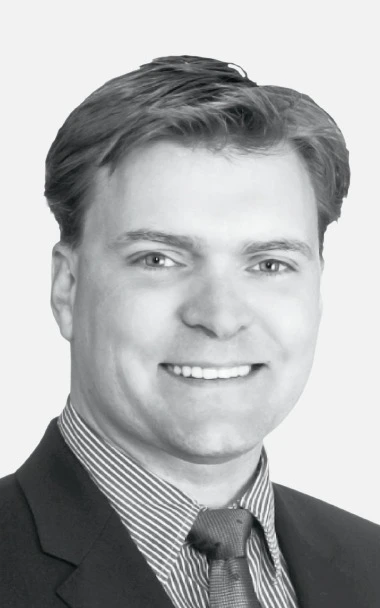 Professor Nicholas Brown is an esteemed member of IASIOS whose commitment to excellence has significantly impacted the field of Interventional Radiology. Prof Brown’s facility achieved the prestigious IASIOS accreditation seal in 2021, a testament to its unwavering dedication to maintaining the highest standards of quality assurance in patient care.
Professor Nicholas Brown is an esteemed member of IASIOS whose commitment to excellence has significantly impacted the field of Interventional Radiology. Prof Brown’s facility achieved the prestigious IASIOS accreditation seal in 2021, a testament to its unwavering dedication to maintaining the highest standards of quality assurance in patient care.
A pivotal figure in the attainment of the IASIOS accreditation, Prof Brown recognized early the significance of the IASIOS accreditation in the IO landscape. With a specialization in Interventional Radiology, his expertise extends across a wide spectrum, encompassing interventional oncology, thoracic interventions, sports medicine, uroradiology, and health economics.
Prof Brown’s academic journey began at the University of Queensland Medical School, where he laid the foundation for his illustrious career. Subsequently, he underwent rigorous radiology training at The Royal Brisbane and Women’s Hospital, followed by a fellowship in Interventional Radiology at St Vincent’s Hospital Melbourne.
Prof Brown pursued post-graduate qualifications in Sports Medicine, Bioscience Enterprise, and Public Health from esteemed institutions such as the University of Cambridge and Harvard University. His diverse skill set, coupled with certification by the European Board of Interventional Radiology (EBIR), enriches his approach to radiological practice.
Currently serving as the Clinical Director of I-MED Radiology at The Wesley Hospital and a Senior Staff Specialist in Radiology at The Prince Charles Hospital, prof Brown’s active involvement in research spanning uroradiology, oncology, sports medicine, and nuclear medicine has resulted in numerous publications in peer-reviewed literature.
In addition to his clinical endeavours, Prof Brown generously imparts his knowledge and expertise as an Associate Professor at the University of Queensland School of Medicine. His contributions to the field of Interventional Radiology are truly commendable.
Get to know Prof. Brown a little bit better!
What are your hobbies and interests outside of medicine?
Outside of medicine, I find enjoyment and relaxation in a variety of hobbies and interests. I am an avid Formula 1 enthusiast. Additionally, I am a supporter of the Wallabies (Australian national rugby team), and I enjoy cycling.
Could you share an experience from your working/educational background that significantly impacted your journey?
As a junior doctor, I regularly attended multidisciplinary team meetings where radiologists consistently stood out as the most knowledgeable. Other specialities often sought their opinion and treatment advice, recognizing the significant role radiologists played in shaping patient care pathways. Interventional radiologists added tremendous value for both referrers and patients, demonstrating the vital importance of their expertise in the healthcare setting.
Why did you choose a career in Interventional Oncology over other specialities?
The field of Interventional Radiology offers a unique approach to patient care, characterized by its minimally invasive techniques guided by imaging. This approach enables us to provide better, faster, safer, and more cost-effective treatments compared to traditional methods. As new technologies continue to emerge, they open exciting new frontiers in treatment, driving the evolution of our field, and I wanted to be a part of this evolution.
What was your motivation behind seeking IASIOS accreditation?
Quality assurance is an important and critical aspect of IO. Ensuring that patients receive the highest standard of care. Accreditation to international standards plays a crucial role in validating IO’s speciality credentials, placing it on par with other oncology specialities. By adhering to these rigorous standards, IO demonstrates its commitment to excellence and patient safety, while also fostering trust and confidence among patients and healthcare providers alike.
What benefits does the IASIOS accreditation provide to the patients and the IOs?
Patients benefit from a stricter adherence to quality practices that provide better outcomes. Additionally, patients are reassured that our IO services comply with the highest international standards.
Could you name some of the improvements IASIOS has brought into your IO service line?
Stricter adherence to quality practices in Interventional Oncology yields numerous benefits. It ensures better and more consistent clinical practices, leading to improved treatment outcomes and patient satisfaction. Additionally, it enhances post-treatment verification processes, allowing for thorough monitoring of treatment efficacy and patient response. Moreover, it facilitates better recruitment of skilled professionals, strengthening the IO team.
How do you see the future and development of IO and the role it plays within cancer care?
Non-surgical, imaging-guided, precision, and personalised medicine are increasingly dominant in the healthcare landscape, and IR/IO is extremely well placed to capitalise on this. IO will consolidate its role as a recognised pillar of Oncology Care.
What advice do you have for the next generation of IOs?
Persevere, aim for high-quality clinical care, understand the role of IO within the broader Oncology Care, alongside surgery, medical oncology, and radiation oncology care, and advocate for your patients.
I-MED Radiology, Wesley Hospital | Auchenflower, Australia
Prof. Roberto Iezzi | IASIOS Council Member
Università Cattolica del Sacro Cuore – Fondazione Policlinico A. Gemelli | IASIOS Accredited Centre
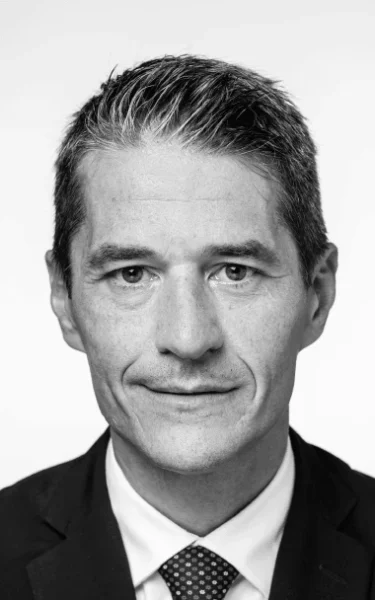 Professor Roberto Iezzi, a pioneer in Diagnostic and Interventional Radiology, is dedicated to advancing Interventional Oncology as a discipline. Specializing in a wide array of areas, including Oncological Interventional Radiology, Cardiovascular Imaging, Emergency and Urogenital Interventional Radiology, Prof. Iezzi’s expertise is unmatched.
Professor Roberto Iezzi, a pioneer in Diagnostic and Interventional Radiology, is dedicated to advancing Interventional Oncology as a discipline. Specializing in a wide array of areas, including Oncological Interventional Radiology, Cardiovascular Imaging, Emergency and Urogenital Interventional Radiology, Prof. Iezzi’s expertise is unmatched.
Currently, Prof. Iezzi leads the Emergency and Interventional Radiology Unit at the Università Cattolica del Sacro Cuore – Fondazione Policlinico A. Gemelli in Rome, which was accredited by IASIOS in 2022. He also serves as an associate professor at the Catholic University of the Sacred Heart in Rome. His contributions extend globally, as he actively participates in multidisciplinary boards and serves on Editorial Boards of esteemed journals.
Moreover, he has participated in numerous congresses in Italy and abroad is the founder of MIOLive (Mediterranean Interventional Oncology Live Congress) and is a member of scientific societies such as the Italian Society of Medical Radiology, the European Society of Radiology, the Society of Interventional Oncology, and the Cardiovascular Interventional Radiology Society of Europe (fellow), holding roles in Faculty and Program Planning Committee at their respective society congresses. He holds many awards for his clinical and investigative work. He is the author or co-author of several publications (>170 IF-published articles), abstracts, and book chapters.
IASIOS is privileged to have Prof. Iezzi as part of our council and community. We extend our gratitude to him for his tireless efforts in advancing the field of Interventional Oncology, and we look forward to continuing our collaboration in the pursuit of excellence in patient care.
Get to know Prof. Iezzi a little bit better!
What are your hobbies and interests outside of medicine?
Outside of my professional life, I greatly enjoy playing the violin, padel, and dancing tango. I also love travelling with my family.
Could you share an experience from your working/educational background that significantly impacted your journey?
Since I was a child, I knew I would become a doctor and a surgeon. By chance, during my fifth year of medical school, while I was waiting to receive my General Surgery thesis, I attended the Radiological department. There, I met a thoracic surgeon who was attending a residency in Radiology. She introduced me to Interventional Radiology, and I decided to abandon my potential career in surgery and start studying Radiology and Interventional Radiology.
Why did you choose a career in Interventional Oncology over other specialities?
Interventional Oncology allows you to be with your patients every step of the way, from diagnosis to treatment. As a radiologist, you’re deeply involved in both diagnosis and cutting-edge technology. You also take on the role of a clinician, overseeing patient management. As an Interventional Radiologist, you administer minimally invasive treatments, working closely with other specialists like oncologists, radiotherapists, and surgeons.
What was your motivation behind seeking IASIOS accreditation?
Obtaining an IASIOS accreditation enables us to establish a well-recognized network of high-level institutions.
What benefits does the IASIOS accreditation provide to the patients and the IOs?
IASIOS accreditation provides patients with the assurance that they will receive safe and effective treatment. Additionally, it aids Interventional Oncologists in refining and implementing their daily practice by offering a comprehensive process of patient care and treatment. This commitment to standardization elevates the quality assurance standards within the field.
Through the IASIOS accreditation process, we have enhanced and standardized our practice, ensuring that routine Interventional Oncology treatments adhere to high standards of quality.
How do you see the future and development of IO and the role it plays within cancer care?
Interventional Oncology is poised to play a pivotal role in patient management, shaping the future of “precision medicine”. We aim to deliver tailored treatments using a multidisciplinary approach for each patient. This approach represents a recognized alternative to traditional methods such as surgery, oncology, and radiotherapy.
By widening our indications and leveraging our main advantages—precision, minimally invasive techniques, minimal impact on quality of life, and curative treatment options—we strive to improve treatment outcomes and redefine standards of care in oncology. This evolution underscores the transformative potential of Interventional Oncology in providing personalized and effective solutions for patients facing cancer.
What advice do you have for the next generation of IO’s:
I invite all aspiring medical doctors to consider the benefits of becoming Interventional Oncologists, a field that offers technological innovation and is a constantly evolving branch of medicine and surgery. The best is yet to come!
Università Cattolica del Sacro Cuore – Fondazione Policlinico A. Gemelli | Rome, Italy
Prof. Dimitrios Filippiadis | IASIOS Committee
Attikon University General Hospital | IASIOS Accredited Centre
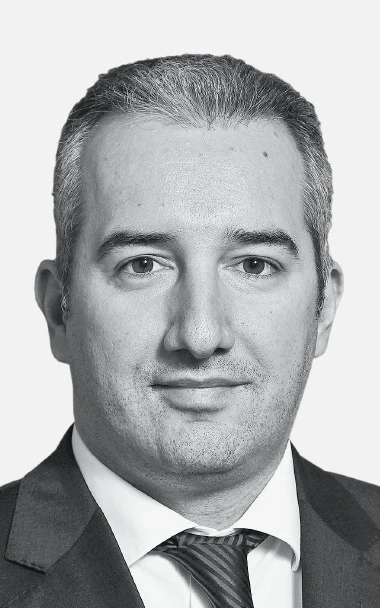 Professor Dimitrios Filippiadis is a distinguished figure in diagnostic and interventional radiology at the National and Kapodistrian University of Athens, Greece. His expertise centres around musculoskeletal (MSK) interventions and diagnostics, interventional oncology, and cancer pain management.
Professor Dimitrios Filippiadis is a distinguished figure in diagnostic and interventional radiology at the National and Kapodistrian University of Athens, Greece. His expertise centres around musculoskeletal (MSK) interventions and diagnostics, interventional oncology, and cancer pain management.
His commitment to IR education is exemplified by his recent appointment as the Chair of the Cardiovascular and Interventional Radiological Society of Europe (CIRSE) Online Education Committee.
Beyond his academic pursuits, Prof. Filippiadis is actively engaged in research, with notable contributions in areas such as discomanometry and the adoption of ablation procedures in Greece.
His dedication to advancing the field of interventional radiology is evident in his numerous accolades and professional affiliations, including his role as a committee member of IASIOS.
A testament to Prof. Filippiadis’s leadership and excellence is the recent achievement of the first IASIOS accreditation in Greece at the University General Hospital Attikon, a milestone that highlights his commitment to elevating standards in patient care.
Get to know Prof. Filippiadis a little bit better!
What are your hobbies and interests outside of medicine?
Before the start and during my studies in Medicine, I was working as a disc jockey (DJ); what’s left of these days and nights are thousands of vinyl records and CDs of all kinds of music, which I love listening to in my free time. Apart from listening to music, I love reading books, especially historical novels (Bernard Cornwell, Wilbur Smith, and Ken Follett are my Favorite authors). My other hobbies include playing basketball and swimming, especially on my beloved island of Lefkada, where we have a beach house.
Could you share an experience from your working/educational background that significantly impacted your journey?
I will always remember a particular morning nearly 15 years ago when an opportunity of a lifetime unfolded before me. I received an offer to join the 2nd Department of Radiology in Athens, where I was tasked with taking over and expanding the ablation section, a proposition that resonated deeply with my aspirations.
It was a moment of serendipity. At that time, I had just rejected an offer, as it required a vascular Interventional Radiologist, whereas I was seeking a broader role. In that pivotal moment, the universe seemed to align in my Favor. I could not believe my fortune, being offered a post to do what I wanted the most. It was one of these times that the universe conspired to help me achieve what I wanted.
Why did you choose a career in Interventional Oncology over other specialities?
During the onset of my residency in Diagnostic Radiology, I found myself with uncertainties, questioning whether I belonged behind a computer monitor, dictating reports. However, in the midst of these doubts, a fellow resident approached me with a proposition that would alter the course of my clinical trajectory.
They suggested enrolling in a post-graduate course on Interventional Radiology organized by Prof. Dimitrios Kelekis in Greece. From the very first introductory sessions, I felt a resonance with this speciality, instantly knowing that this is what I wanted to follow in my clinical career.
Several years later, a pivotal moment occurred during my visit to Strasbourg, courtesy of a CIRSE grant. Spending time there alongside Prof. Gangi and Dr. Buy, I realized that Interventional Oncology would be a 24/7 practice for me.
What was your motivation behind seeking IASIOS accreditation?
The 2nd Department of Radiology is dedicated to delivering exceptional Interventional Oncology services, catering to the largest number of patients in the country. Pursuing IASIOS accreditation was aimed at establishing unparalleled standards for patient care and encouraging good practice for Interventional Oncology services.
Furthermore, as physicians, we wanted to become members of a global community that offers benefits such as professional development, networking, recognition, and marketing and promotion.
What benefits does the IASIOS accreditation provide to the patients and the IOs?
Now that we have successfully obtained the IASIOS accreditation, the benefits for both our patients and practice performance have become evident. The entire process of patient care and treatment has undergone improvements. Throughout the accreditation process, we analysed our service line and refined its coordination and monitoring, and the outcome speaks for itself. An elevated standard of care in Interventional Oncology with the patient receiving the best possible treatment aims for the optimal individual clinical outcome.
Could you name some of the improvements IASIOS has brought into your IO service line?
Firstly, we discovered a wealth of resources and tools within our department that had previously gone unnoticed. These invaluable assets proved instrumental in enhancing the organization of our daily Interventional Oncology clinical service. With better organization, we were able to streamline our operations, resulting in a notable increase in the number of patients receiving treatment and an overall boost in productivity.
Moreover, the positive impact of this improvement extended horizontally across the department, influencing not only IO but also all other Interventional Radiology services.
How do you see the future and development of IO and the role it plays within cancer care?
The statistics and forecasts surrounding cancer care paint a clear picture: there will be a substantial increase in the number of patients opting for Interventional Oncology therapies in the coming years. This surge can be attributed to several factors, including the minimally invasive nature of IO techniques and their associated low morbidity and mortality rates, rendering them an attractive alternative or even first-line therapies for a wide majority of patients.
One key advantage of IO therapies lies in their Combination of IO techniques with systemic therapies, which clearly boosts cancer killing as well as allows the continuation of systemic treatments by overcoming the few sub-clones that have developed resistance. To sustain the solid foundation of IO and pave the way for further growth and development, it is imperative that we prioritize clinical services and patient care.
What advice do you have for the next generation of IOs
My advice for the next generation of Interventional Oncologists (IOs) is rooted in embracing CIRSE’s vision, which prioritizes clinical services and patient care. It is crucial for aspiring IOs to seek out mentors who can guide them through challenges, provide invaluable support and ensure a cohesive pathway toward success. Additionally, I urge them not to overlook the importance of research, as it serves as the foundation upon which innovation and advancement in the field are built. These three pillars will be the water-making the millwork!

